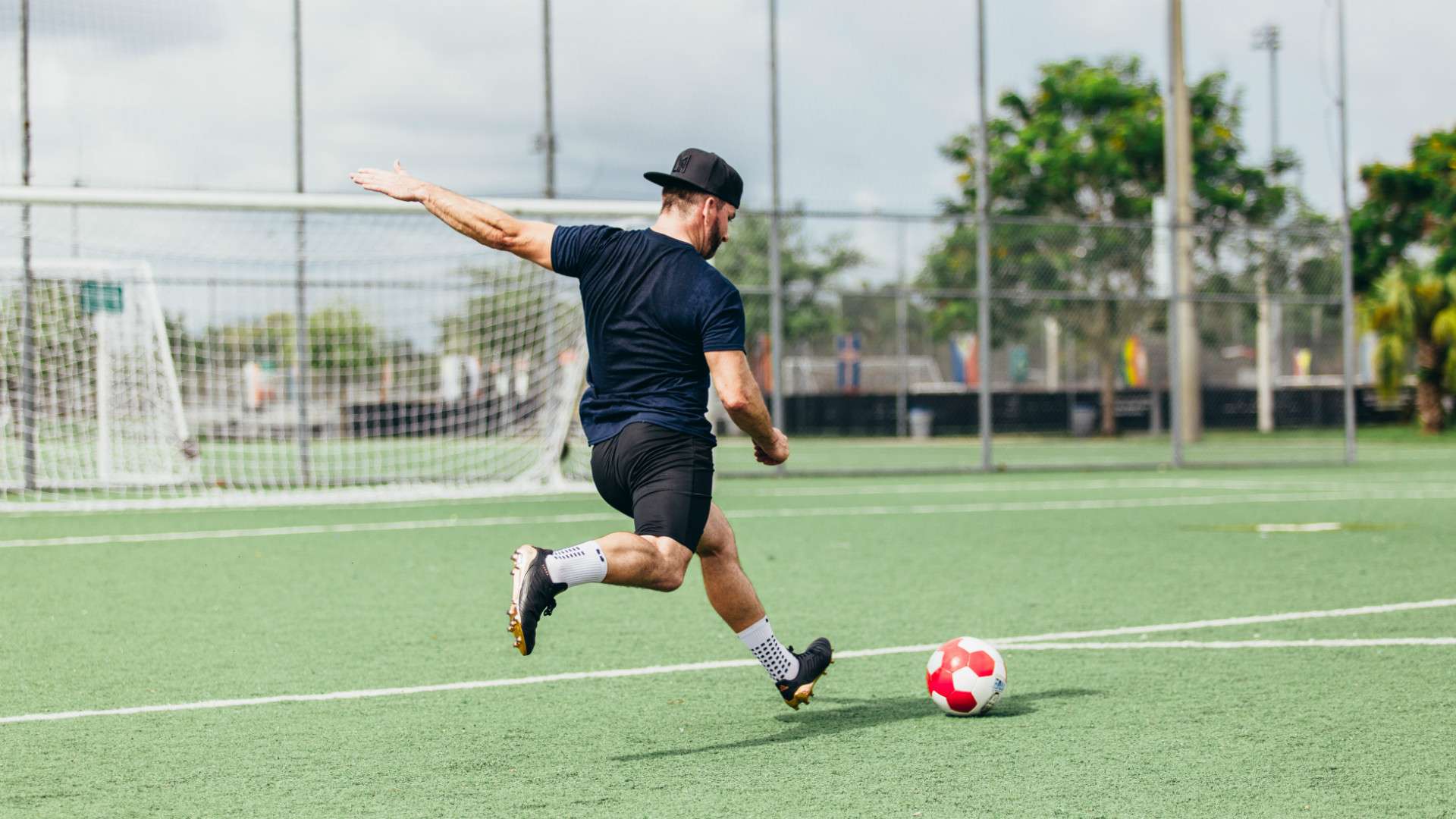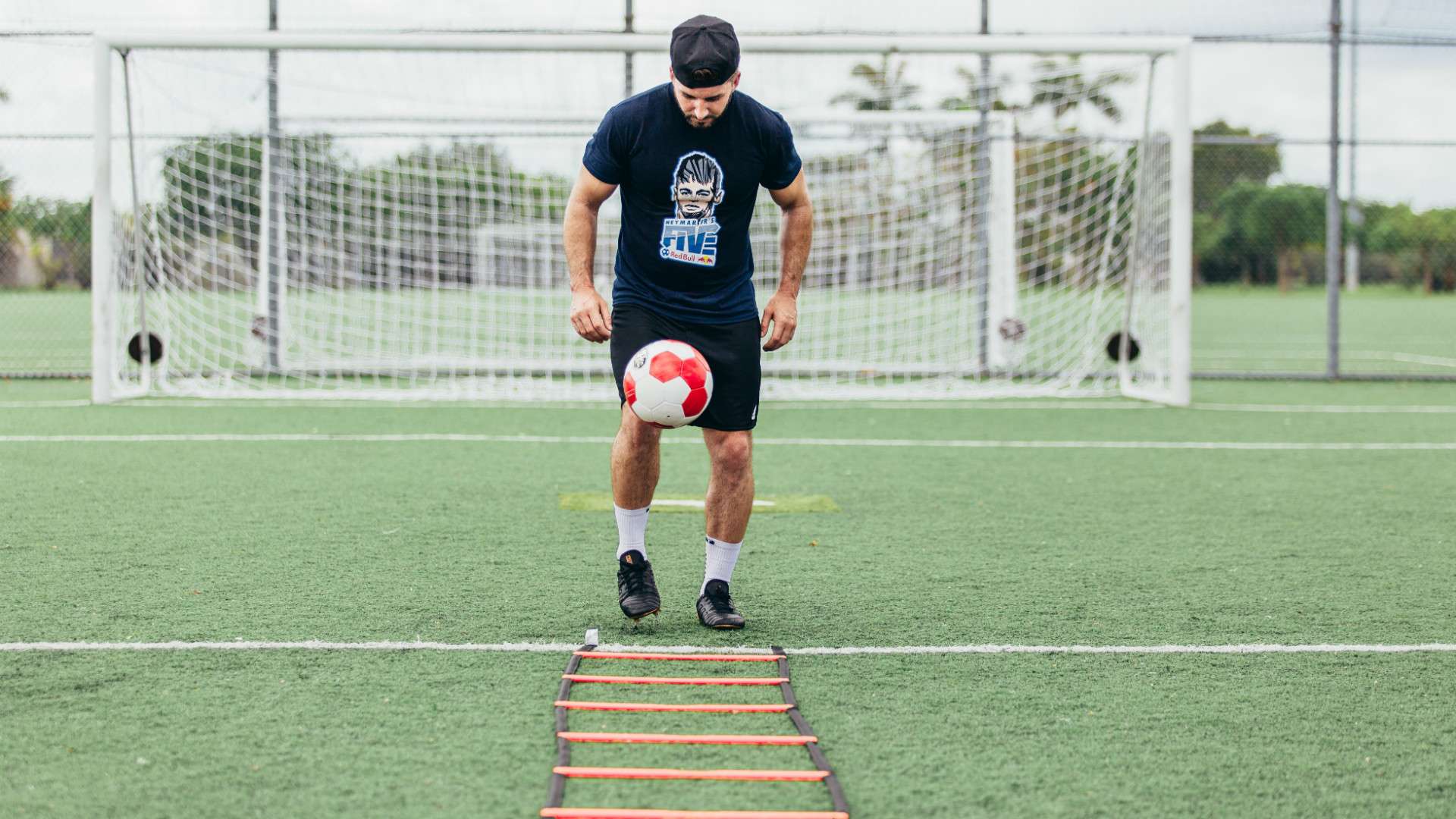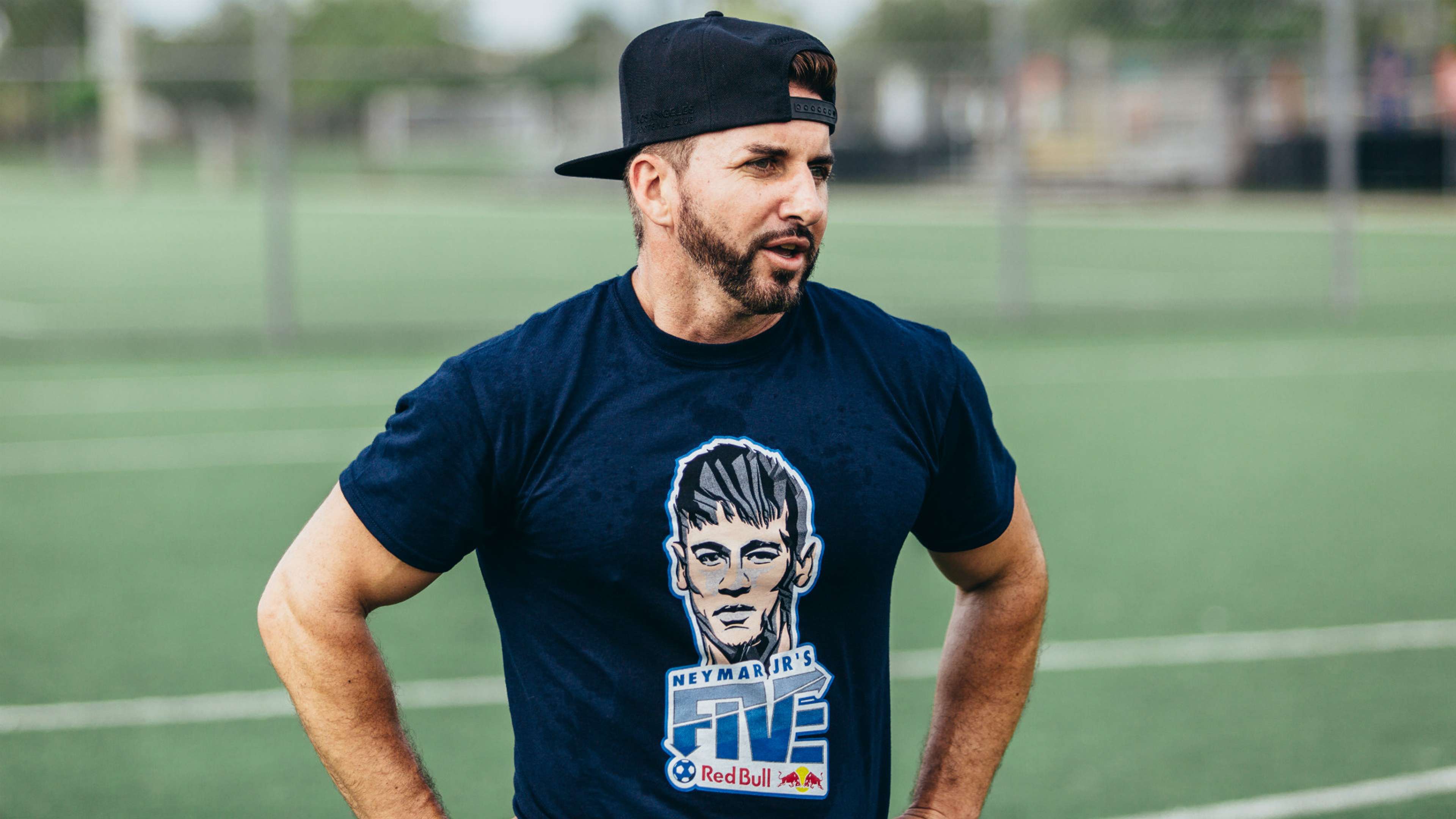On first glance, Daniel Gildea's 'Soccer Assassins' social-media pages appear to be little more than examples of the football freestyling accounts that have become increasingly popular in recent years.
Players male and female alike, from adults to young children, dribble between cones, curl in long-range free-kicks and even perform tricks with tennis balls.
Where Dembele fits into Pep's revolution
Soccer Assassins is not just for show, though; it is Gildea's popular coaching school and the Facebook and Instagram pages are his means of spreading his gospel and attracting new clients, rather than an end in themselves.
That gospel has an ever-increasing group of followers - both real-life and online - seeking an education they do not receive anywhere else.
Gildea is a former Leeds United academy player who briefly turned professional with Scarborough, his hometown club. When a full career in the senior game did not materialise, he turned to coaching having taken his badges while still a youth player.
Instead of taking a job at an academy somewhere in the English lower leagues, though, Gildea decided to travel abroad. He worked in Wisconsin on temporary visas before moving out to Dubai, but a preference for the culture in the United States saw him return. He now lives and coaches in Massachussetts.
If Gildea's path has been unorthodox, his coaching is equally so - at least by American and English standards.
"I grew up in a system where I felt like skills were taught to an extent, and technique was taught to an extent, but then I felt like they were knocked out of you a little bit when you get to 15, 16, 17," he told Goal. "Winning becomes paramount, style goes out of the window.
"I think I grew up in a system that I thought was broken a little bit, and I wanted to kind of hone in on the technique, what the Brazilians do, and play with that flair and creativity. Part of the stuff I'm doing is keeping the exercises fun, challenging and massively player-centric and not team-oriented."
That means working with individuals on a one-on-one basis rather than becoming involved with full teams.
The success and popularity of his school has seen clubs come calling, and he is now partnered with Global Premier Soccer, an official partner of Bayern Munich, as well as the New England Revolution of MLS. Even when working with kids closely monitored by the German giants, though, Gildea has total control over the curriculum he teaches.
"It's just being a player-centric coach and developing individuals that can definitely fit into a team but [also] be a game-changing type of player, not a reserve," he explains.
"Here in the States and when I was back in England, I think we develop those kinds of [robotic] players... the [right] intentions are there, but I think at times we knock that kind of flair and creativity out of players.

"It's a lot of repetition [of skills]. Also allowing players, especially in the final third, to make their own decisions. When I have very, very good attacking players that can do amazing things with the ball, I try not to fall into the trap of dictating what they do.
"I'll give them suggestions; if they make the wrong decisions, then there's talking points there, but it’s not 'don’t do that'. It’s not 'you can't do that skill because it won't work'. I think you can use any of the skills that we do in game situations if they're done at the right level and the right intensity."
There is another key point Gildea believes the English and Americans are, largely, getting wrong, which is our - somewhat ignorant - assumption that superstars like Neymar are made "on the street".
"People can say - and they've got a point - that there's a huge thing in terms of street football [in Brazil], but they're still learning that stuff in structured environments as well," he says.
"Neymar was in a professional academy as a kid, so he wasn't necessarily just honing all of his skills in that street environment. The stuff he does is very fluid and with a lot of flair, but I guarantee that he did a lot of repetitive stuff as well to get to the level he's at."
Gildea was recently asked to put on a session for the USA's representatives at the Neymar Jr's Five finals, which will be held in Sao Paulo in July and contested by 53 teams that won qualifying tournaments entered by an astonishing 27,285 sides globally.
It may be that it is in these types of environments, rather than the more traditional ones, that true individual stars are forged unless there is a shift in mentality.
In America, Gildea says, there are two problems; the over-reliance on big, physical players and a system that still puts too much of an emphasis on winning over development. Both, as has been well documented, have plagued English football as well.

"The early maturing players dominate the game at younger ages and are the ones coaches want on their team," Gildea adds.
"I haven't got a problem with having big players but when you allow them to just use their power and strength to win games you're not helping them either, because at 15, 16, they’re the ones that dip off because you haven't taught them, 'actually, at the next level you're going to need to know how to hold the ball up, how to turn quickly and link up play'.
A future without Messi & Ronaldo
"There's a reliance on big, powerful, quick players which the U.S. produces, but the soccer brain and the fluidity and the technique is what will shine through in the end.
"I think, as well, there's a mistake of... there's a lot of money in youth soccer out here, more so than most other places, and there’s a huge reliance on recruiting [players] and winning big championships and winning leagues to be able to recruit [the next crop of] players.
"I think sometimes that takes away from the development in terms of, are we producing individual players that can go on and play at that next level? Or are we producing two-touch robots on a team because they can win you games? That’s what I see out here a little bit."
After a number of highly touted young players failed to make the grade, the United States might finally have a first bonafide male superstar in Christian Pulisic - whose example, Gildea says, will help "massively".
It is no coincidence that Pulisic was born to two soccer-playing parents who emphasised 'free play' while he was growing up and removed him from environments in which winning was prioritised above all else.
"The talent is there, but I just think at times it gets coached out of you - 'that won’t work [in games]'," Gildea says. "It does work.
"If Ronaldinho was pulled back [like that] when he was 12, 13, 14, I don't think you'd see the same Ronaldinho that we saw for 10 years dominating the game."
